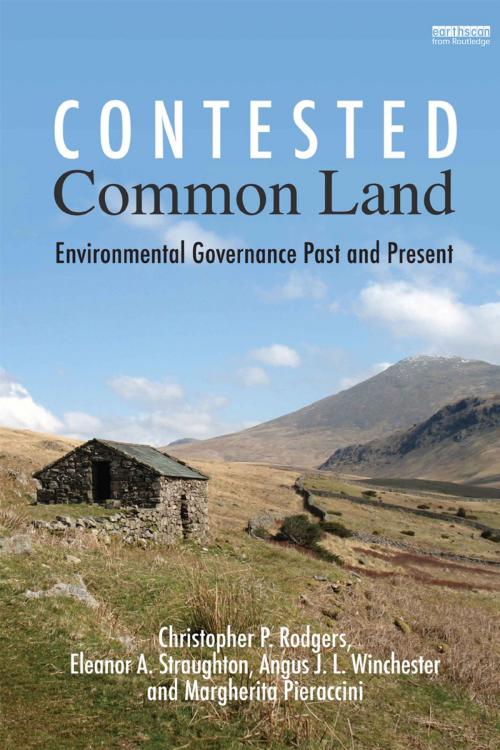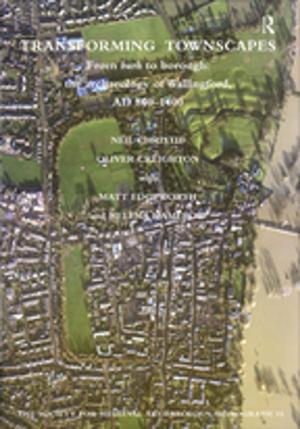Contested Common Land
Environmental Governance Past and Present
Nonfiction, Reference & Language, Law, Natural Resources| Author: | ISBN: | 9781136537745 | |
| Publisher: | Taylor and Francis | Publication: | August 6, 2012 |
| Imprint: | Routledge | Language: | English |
| Author: | |
| ISBN: | 9781136537745 |
| Publisher: | Taylor and Francis |
| Publication: | August 6, 2012 |
| Imprint: | Routledge |
| Language: | English |
This innovative and interdisciplinary book makes a major contribution to common pool resource studies. It offers a new perspective on the sustainable governance of common resources, grounded in contemporary and archival research on the common lands of England and Wales - an important common resource with multiple, and often conflicting, uses. It encompasses ecologically sensitive environments and landscapes, is an important agricultural resource and provides public access to the countryside for recreation. Contested Common Land brings together historical and contemporary legal scholarship to examine the environmental governance of common land from c.1600 to the present day. It uses four case studies to illustrate the challenges presented by the sustainable management of common property from an interdisciplinary perspective - from the Lake District, Yorkshire Dales, North Norfolk coast and the Cambrian Mountains. These demonstrate that cultural assumptions concerning the value of common land have changed across the centuries, with profound consequences for the law, land management, the legal expression of concepts of common 'property' rights and their exercise. The 'stakeholders' of today are the inheritors of this complex cultural legacy, and must negotiate diverse and sometimes conflicting objectives in their pursuit of a potentially unifying goal: a secure and sustainable future for the commons. The book also has considerable contemporary relevance, providing a timely contribution to discussion of strategies for the implementation of the Commons Act of 2006. The case studies position the new legislation in England and Wales within the wider context of institutional scholarship on the governance principles for successful common pool resource management, and the rejection of the 'tragedy of the commons'.
This innovative and interdisciplinary book makes a major contribution to common pool resource studies. It offers a new perspective on the sustainable governance of common resources, grounded in contemporary and archival research on the common lands of England and Wales - an important common resource with multiple, and often conflicting, uses. It encompasses ecologically sensitive environments and landscapes, is an important agricultural resource and provides public access to the countryside for recreation. Contested Common Land brings together historical and contemporary legal scholarship to examine the environmental governance of common land from c.1600 to the present day. It uses four case studies to illustrate the challenges presented by the sustainable management of common property from an interdisciplinary perspective - from the Lake District, Yorkshire Dales, North Norfolk coast and the Cambrian Mountains. These demonstrate that cultural assumptions concerning the value of common land have changed across the centuries, with profound consequences for the law, land management, the legal expression of concepts of common 'property' rights and their exercise. The 'stakeholders' of today are the inheritors of this complex cultural legacy, and must negotiate diverse and sometimes conflicting objectives in their pursuit of a potentially unifying goal: a secure and sustainable future for the commons. The book also has considerable contemporary relevance, providing a timely contribution to discussion of strategies for the implementation of the Commons Act of 2006. The case studies position the new legislation in England and Wales within the wider context of institutional scholarship on the governance principles for successful common pool resource management, and the rejection of the 'tragedy of the commons'.















